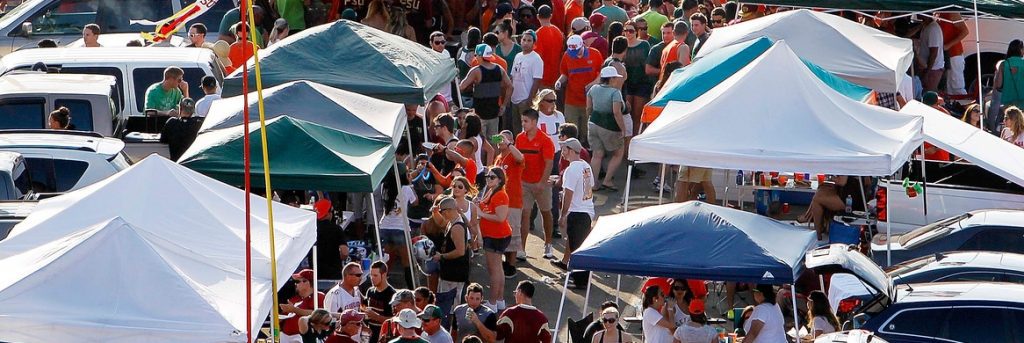As fans eagerly anticipate the NFL playoffs, a new study by Tonya Williams Bradford, an assistant professor of Marketing at the Paul Merage School of Business, examines college football tailgating in an article titled, “Dwelling dynamics in consumption encampments: Tailgating as emplaced brand community.”
Co-authored by Professor John F. Sherry from the University of Notre Dame and published in Marketing Theory, the goal of the research was to explain the mechanisms through which tailgating is managed by tailgaters, so that authorities do not have to intervene to maintain the good-natured fun of the experience.
“Tailgating takes place over the course of a day. During that short period, a nomadic brand community encampment arises, replete with ersatz homes, a grid of streets with ingenious address coordinates, playing fields, and channels of information exchange. In the duration of a tailgate, a city is raised, and ultimately razed,” Bradford said.
The study examines how tailgates are a type of “consumption encampment”—a type of periodic market, like a farmers’ market, where the entire venue is set up for an event or occasion, and then immediately removed. The researchers also looked into how some universities encourage football tailgating and use it as a branding opportunity for their school.
The study unpacks the mechanics of the space-to-place transformation that characterizes collegiate tailgating by identifying three architectonic pillars:
- Chorography: the place-making effort undertaken by consumers or fans.
- Conviviality: the fondness that the researchers observed consumers exhibit for the companionship taken in drinking and feasting.
- Community: the social solidarity arising from the conviviality that chorography situates.
“In the brand community emerging in lots surrounding collegiate football games, there is a belief that fans are not only creating a do-it-yourself extravaganza for themselves but that they are also contributing psychic and emotional energy to a prospective victory in the stadium,” Bradford wrote. “Informants told us that tailgating gets them “pumped,” “primed,” and “psyched” for the effortful work of cheering their team to win on the field, but even more, creates a magical or mystical connection to the forces of victory.”
